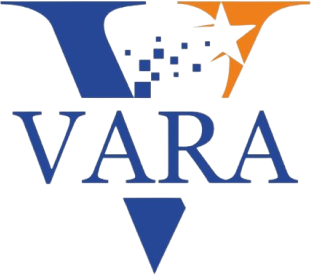
Trust and transparency are more important than ever in today’s complex and rapidly evolving business landscape. Enter blockchain technology, a revolutionary concept that has the potential to transform the way companies reconcile their financial transactions. Blockchain provides a decentralized and immutable ledger that allows multiple parties to verify and record transactions securely and transparently. This powerful technology can eliminate the need for intermediaries, reduce errors, and streamline the Intercompany reconciliation process, ultimately enhancing trust and transparency between companies.
In this article, we will explore the power of blockchain in intercompany reconciliation and how it can revolutionize business.
Intercompany Reconciliation Explained
Intercompany reconciliation is a critical process that ensures the accuracy and consistency of financial transactions between companies within a corporate group. It involves comparing and matching the financial records of different entities to identify and resolve any discrepancies. This process is essential for financial reporting, auditing, and ensuring compliance with accounting regulations.
Historically, intercompany reconciliation has been a lengthy and error-prone task. It often involves manual data entry, multiple systems, and reliance on trust between entities. This can lead to delays, inaccuracies, and a lack of transparency, making it difficult for companies to have a complete and accurate view of their financial position.
Challenges in Traditional Intercompany Reconciliation Processes
Traditional intercompany reconciliation processes face several challenges that can hinder efficiency and accuracy. One of the main challenges is the reliance on manual data entry and paper-based documentation. The process is cumbersome and time-consuming, which increases the risk of errors.
Another challenge is the lack of real-time visibility into transactions and balances. Companies often have to wait for periodic reports or rely on manual requests for information, leading to delays in identifying and resolving discrepancies. This lack of transparency can erode trust between entities and hinder effective decision-making.
Additionally, traditional reconciliation processes often involve multiple systems and formats, making it difficult to standardize and streamline. It increases the chances of errors, inconsistencies, and difficulties in reconciling information across different entities.
How Blockchain Enhances Trust and Transparency
Blockchain technology can address the challenges facing traditional intercompany reconciliation processes. By utilizing blockchain, companies can achieve enhanced trust and transparency. Transactions recorded on the blockchain are immutable, meaning they cannot be altered or deleted. It eliminates the risk of fraud and provides a transparent audit trail which can be easily verified by all parties involved.
Furthermore, blockchain operates on a consensus mechanism, where multiple participants validate and agree on the accuracy of transactions. This consensus model ensures that all parties have a shared version of the truth, eliminating the need for intermediaries and reducing the risk of errors or discrepancies.
Benefits of Using Blockchain for Intercompany Reconciliation
The adoption of blockchain technology for intercompany reconciliation offers several benefits for businesses. Firstly, it eliminates the need for intermediaries such as clearinghouses or third-party service providers. As a result, companies can gain real-time visibility into their financial transactions and reduce costs.
Secondly, a decentralized ledger eliminates misunderstandings and disputes, as all parties have access to the same information. It promotes trust and strengthens business relationships within a corporate group.
Additionally, blockchain improves the accuracy of intercompany reconciliation by minimizing human errors and data inconsistencies. A distributed ledger allows users to verify transactions easily since it provides a single source of truth. It reduces the chances of discrepancies and provides a reliable and accurate record of financial transactions.
Real-World Examples of Blockchain in Intercompany Reconciliation
Several companies and organizations have already started exploring the potential of blockchain in intercompany reconciliation. For example, Walmart, one of the world’s largest retailers, has implemented blockchain technology to track and trace food products within its supply chain. It enables the company to reconcile transactions and ensure the authenticity and safety of its products.
Another example is Maersk, a global shipping company that has partnered with IBM to develop a blockchain-based platform for managing and reconciling shipping documents. This platform has streamlined the documentation process, reducing the time and effort required for intercompany reconciliation.
These real-world examples demonstrate the practical applications of blockchain in enhancing trust, transparency, and efficiency in intercompany reconciliation processes.
Implementing Blockchain for Intercompany Reconciliation
Implementing blockchain for intercompany reconciliation requires careful planning and consideration. Companies should assess their existing systems, processes, and data flows to identify areas that can benefit from blockchain technology.
One important consideration is the choice of a blockchain platform. To choose the most suitable platform, companies must evaluate the trade-offs between transparency, security, and scalability.
Another key aspect is data integration and interoperability. Companies often have multiple systems and data sources that need to be reconciled. Blockchain can provide a unified and standardized platform for integrating data from different entities, ensuring consistency and accuracy in the reconciliation process.
Potential Future Developments in Blockchain and Intercompany Reconciliation
The potential of blockchain in intercompany reconciliation is still evolving, and there are several future developments to watch out for. One area of interest is the integration of smart contracts into blockchain solutions. Smart contracts are contracts that execute themselves based on predefined rules and conditions. They can automate the reconciliation process, reducing the need for manual intervention and increasing efficiency.
Another potential development is artificial intelligence and machine learning algorithms in blockchain solutions. These technologies can analyze large volumes of data, identify patterns, and predict potential discrepancies, further enhancing the accuracy and efficiency of intercompany reconciliation.
Moreover, integrating blockchain with IoT and big data analytics can enhance the transparency and traceability of financial transactions by enhancing transaction transparency and traceability.
Conclusion
Blockchain technology has the power to revolutionize intercompany reconciliation by enhancing trust, transparency, and efficiency. Companies that embrace blockchain for intercompany reconciliation can benefit from real-time visibility, improved accuracy, and strengthened business relationships. As this technology continues to evolve, we can expect further advancements that will reshape the future of financial reconciliation.
It’s time for businesses to explore the potential of blockchain and unlock its transformative power in intercompany reconciliation.
Join the Conversation
Receive newsletters, webinar invitations, announcements and more.

